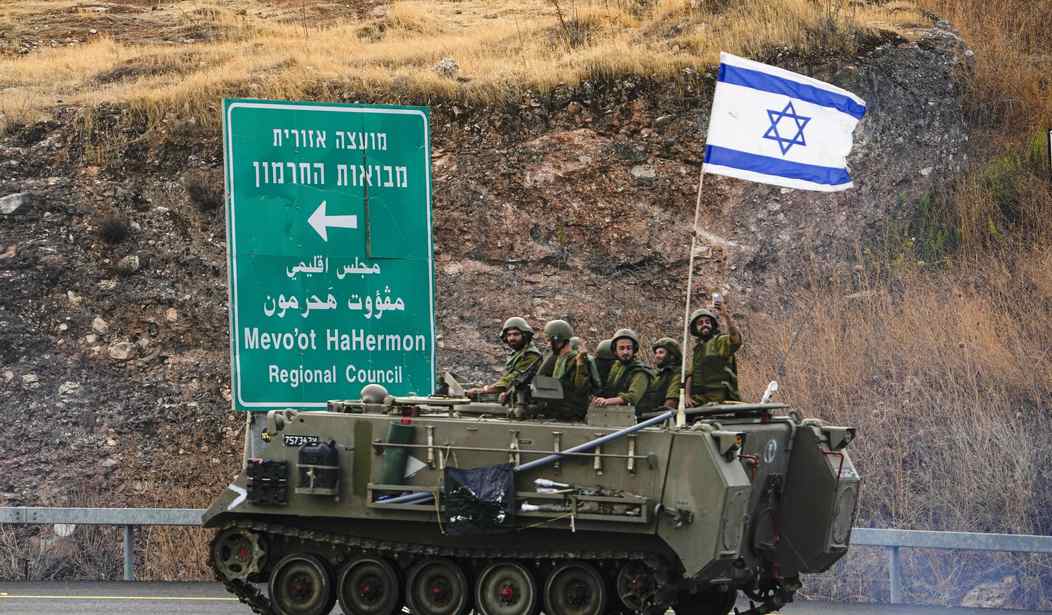Have Iranian proxies had enough of the IDF? Maybe … if you can trust them to stick to their word. After almost exactly five months of war in Gaza and all-but-war in southern Lebanon, both Hamas and Hezbollah sent signals in the last 24 hours that they may be ready to scale back — for now.
Let’s start in the north. Israel has threatened to invade southern Lebanon to enforce a UN directive ordering its demilitarization. Now it appears that a US-led initiative might achieve this diplomatically, putting an end to the cross-border exchanges that have percolated since the October 7 massacres in the south:
[US envoy Amos Hochstein] met with Defense Minister Yoav Gallant in Tel Aviv for ongoing discussions on Saturday. Channel 12 reported that the US envoy has conveyed “signs” of a possible diplomatic solution, which will include Hezbollah moving back from the border. There was no official confirmation of this.
According to the report, senior Israeli officials were feeling optimistic about a potential deal for the first time since the start of the war almost five months ago.
Hebrew-language media reported Saturday that the brewing US-brokered proposal includes three phases: first, an interim agreement that will include an 8-kilometer (4.9-mile) to 10-kilometer (6.2-mile) withdrawal of Hezbollah forces from areas near the boundary with Israel; second, an increase in the deployment of UN forces and the Lebanese army in the area; and third, the return of evacuated residents to their homes in northern Israel and south Lebanon. The framework will also include talks on demarcating an actual land border between Israel and Lebanon and possible US-led incentives for Beirut to agree to a deal.
This seems somewhat surprising, given Hezbollah’s pugnacious attitude over the last five months. They have kept firing at Israeli cities and military positions in a clear attempt to force the IDF to commit significant forces on its northern border while Hamas attacks in the south. Neither of those plans have worked out well, but the strategic plan seems to have worked. Hezbollah has forced Israel to extend its mobilization, at least, at some economic and political risk. This seems like a very strange time to agree to withdraw, a move that will free Israel up to concentrate more forces on the shrinking Hamas pocket in Gaza.
What gives? It may not be Hezbollah’s choice. They are only one faction of a fractious polity in Lebanon, and the other parties in Beirut may have had enough. If the US leaned on Beirut by promising to add to the attacks on Lebanon’s infrastructure until Beirut complied with the demilitarization in the south, that might have been enough. (Israel’s assassination of a Hamas leader in Beirut might have prompted this, too.) A border settlement goes beyond that, though, and one has to wonder whether the Israelis threw in some concessions to goose the pressure on Hezbollah to back down.
Needless to say, such a deal would come at a very bad time for Hamas, which had counted on Iran’s affiliates to join the war on October 7. Their shared doctrine of a “unified battlefield” has failed to materialize in force, as Hamas’ partners didn’t take the bait and launch full-scale wars on Israel’s other borders. That has left Israel with plenty of opportunity to dismantle Hamas’ military infrastructure in Gaza and to destroy its quasi-military terrorist “brigades” hiding under Gaza’s cities.
About the only option Hamas has now is to sue for peace — or to use the hostages to force Israel into retreat. Guess which option they still want to use — even as they also signal some retreat on their maximalist demands?
Al-Akhbar claimed that the leadership of Hamas has updated the Qatari side on the “atmosphere” of what they believe will be the general framework for the answer, of which there is a focus on the urgency of ensuring that in any proposal, there will be a clear and direct provision regarding a complete cease-fire in the Gaza Strip and the promise of guarantees that emphasize Israel’s commitment to stopping the war at the end of an exchange between hostages and Palestinian prisoners.
Palestinian sources told Al-Akhbar that Hamas leadership in Gaza agreed with the leadership of the political wing abroad that the organization’s written answer that will be delivered to the Qatari and Egyptian mediators will be “in a positive direction” but “will include the introduction of new key points on the agreement framework, and will explicitly state the cessation of hostilities clause regardless of whether it is at the beginning the transaction or in the end.”
There have been previous reports by Israel that it believes that Hamas’s response to the deal has been delayed due to differences of opinion between the leadership of Hamas in Gaza and the leadership of Hamas abroad.
It won’t matter anyway. Israel is not going to simply pull out of Gaza while Hamas remains a threat. The only way that the war ends now is either with a formal capitulation of Gaza that includes the surrender of all Hamas operatives, or by complete military defeat. Those are the options when one side starts a war with clearly declared genocidal ambitions and promises that any cease-fire will be followed by more atrocities once their strength has been regained. Hamas left Israel with no other choice, and it doesn’t matter whether Benjamin Netanyahu or Benny Gantz runs the government. No Israeli politician of any leadership rank would choose differently, because October 7 made this an existential question, not just a political and diplomatic issue.
If Hezbollah retreats, expect Hamas to continue to “evolve” on terms for the hostages, as they have since last week. That is, expect them to “evolve” right up to the point when they “devolve” into the dust in Khan Younis and Rafah.







Join the conversation as a VIP Member